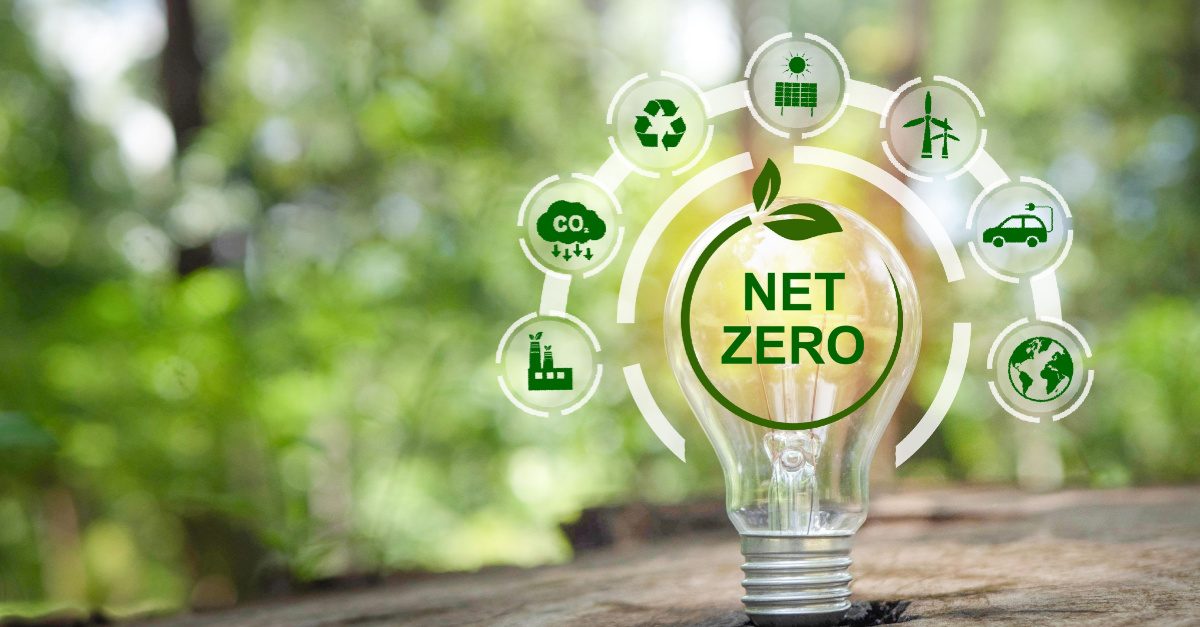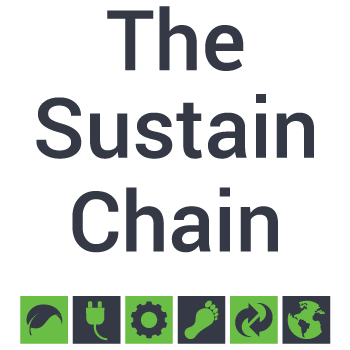
Roadmap to Net Zero: How UK businesses can approach environmental sustainability
Achieving Net Zero is a crucial goal in achieving sustainability. It requires transitioning to a low-carbon economy and adopting sustainable practices that prioritise environmental, social, and economic considerations. By working towards Net Zero and sustainability simultaneously, businesses can contribute to a more sustainable future where resources are managed efficiently, the environment is protected, and communities are thriving.
The current state in the world (and the UK)
A 2022 research has shown that 84% of the UK public is concerned about climate change. This is understandable, as the latest report from the IPCC does not bode well.
Unless the world can restrict global warming to 1.5°C above pre-industrial levels, climate patterns will change irrevocably and lead to consequences like crop failures, more storms and sea levels rising everywhere.
Luckily, there is a way out, but it requires a strict and immediate commitment to phasing out fossil fuels, halting deforestation and making green tech the standard everywhere.
For this reason, countries worldwide are considering Net Zero targets – where greenhouse gas emissions are minimised and the amounts released are absorbed by natural or manmade carbon sinks, thus making zero net additions to greenhouse gas levels in the atmosphere. In this piece, we discuss how UK businesses can make that happen:
The UK Net Zero target
Citizens are worried about the planet’s future, and the UK – to its credit – has been taking proactive steps. In fact, the UK was one of the first countries to declare a legally binding Net Zero target for itself, to be achieved by 2050, based on the recommendations of the independent advisory body Climate Change Committee (CCC).
The key word here is ‘net.’ It is not feasible to aim for absolute zero, as certain industries like agriculture and aviation can never completely be free of greenhouse gases. To compensate for that, however, it is all the more essential to invest in carbon capture/storage technology and the widespread planting of trees so that the economy can be decarbonised as a whole.
In many ways, the UK is ideally positioned to lead towards global Net Zero. The country has halved its greenhouse gas emissions since 1990, and the UK’s leadership of COP26 was instrumental in raising the global GDP committed to Net Zero/carbon neutrality goals from 30% to 80%. Read a detailed report here.
The UK is also determined to build a more robust post-pandemic economy by investing in sustainable practices that create more high-wage jobs and ensure that families everywhere can access cheap, clean energy.
The UK already has excellent nuclear reactors and successful wind farms in the North Sea, which will help protect citizens from spikes in energy bills due to the rising fossil fuel costs. And by accelerating investment in sustainable technology, the UK can become a global machinery and leadership hub for the Net Zero future.
How to foster environmentally friendly and sustainable business practices
It is widely accepted that businesses are responsible for operating as sustainably as possible. Many consumers factor sustainability into deciding whether to buy from a company, which also means there is a profitability element. What often happens, however, is that businesses do not know where to start, even if they have the right intentions. Here, we list some practical ways to run more environment-friendly companies:
1. Minimise energy consumption
This is a must-do and requires businesses to conduct an energy usage audit, identify inefficiencies and then agree on ways to correct them. Replacing older lighting with energy-efficient LED lights is a brilliant start, as is using natural light whenever possible.
Many businesses use sensors to switch off heating and lighting when no people are in the room. It is also worth investing in solar panels, geothermal energy or wind turbines so that the company can access cheap renewable energy for years to come.
Last but not least, when replacing electronic devices like computers, businesses should start checking for the energy star ratings of each to make the most energy-efficient choice.
2. Reduce waste by setting up recycling bins
This is another simple yet highly effective tactic. Minimising paper usage is a fantastic first step, as is switching to recycled paper products and encouraging personal cutlery and cups rather than disposable varieties.
Electronic waste can be a big polluter if disposed of incorrectly, so businesses should work with dedicated service providers to process their old computers, hard drives and other tech hardware. Besides, most households are now used to sorting out their recyclables, which will be easy to adopt at work.
Businesses can set up labelled bins for compost, landfill and recycling and keep them clear of where their employees are working as a visual cue. Senior managers should lead by example and encourage regular recycling through incentives like prizes for which department can recycle the most in a month.
Bin lifters are incredibly useful tools for clearing waste, especially in commercial settings. They allow waste removal workers to easily and safely lift and empty large bins of waste into dumpsters or trucks, reducing the risk of injury or strain.
The MegaDumper® by Simpro, for instance, is a highly efficient bin lifter with a 600 kg capacity, introduced in 1998. It has a reliable bin-tipping mechanism and is considered the most secure and reliable industrial waste bin tipper in the market. It features a safety interlock system, full-height guarding, and a swing-up door, and can empty 660-litre and 1100-litre containers.
The use of bin lifters in recycling enables more efficient and streamlined collection of recyclable materials, which helps reduce the time and resources required for waste collection. They also minimise the amount of contamination in the recycling stream.
3. Find ways to conserve water
Water conservation is an essential aspect of sustainability for businesses. By conserving water, they can reduce their environmental impact, lower their water bills, and help preserve this precious resource for future generations.
For instance, leaks can waste a significant amount of water. Check for any leaks in taps, pipes, and toilets, and repair them as soon as possible. Installing low-flow fixtures such as aerators and showerheads can significantly reduce water usage without compromising performance.
Encourage employees to turn off taps tightly after use to prevent dripping and unnecessary water waste. Collect rainwater and use it for watering plants or cleaning. Additionally, reuse water from certain processes like rinsing dishes.
4. Decrease digital carbon footprint
Many businesses may not know this, but data storage consumes a lot of energy, as do data requests. An excellent solution is to work with a provider of eco-hosting services so that the website hosting and storage use little energy and regular data cleanups are conducted to reduce the environmental impact of the company website. Building an eco-friendly website with colours and backend codes that consume less energy is also a good idea.
5. Recycle electronics ethically
Electronic waste (e-waste) is a significant environmental concern, as it can release harmful chemicals and metals into the environment if not disposed of properly. Recycling electronics is an essential step towards reducing e-waste and protecting the environment.
When it comes to computers that are no longer suitable for company use, several options are available, including donating them to charities or community organisations or participating in a recycling program offered by the computer brand if the devices are less than five years old.
This is an excellent way to extend the life of the device and ensure that it benefits someone else who may not have access to technology otherwise. Many non-profit organisations also accept donations of used computers and refurbish them for use in schools, community centres, or low-income households.
By recycling electronics innovatively, businesses can reduce their e-waste, support their local community, and help bridge the digital divide.
6. Be smarter about packaging
Product packaging is a big source of waste, and a little forethought can go a long way to reduce that. As a first step, businesses should think of ways to cut back on the amount of packaging used per product. Then, they should switch over to eco-friendly packaging materials recyclable and/or are made of recycled raw material.
For instance, using packaging made of recycled paper or cardboard can significantly reduce the environmental impact of packaging. Similarly, biodegradable plastics, such as cornstarch or potato starch, can be a sustainable alternative to conventional plastic packaging.
Furthermore, redesigning the packaging to be more streamlined or using lighter materials yet still sturdy enough to protect the product during transportation and storage.
7. Choose sustainable partners
To build a more eco-friendly supply chain, it is vital that the business partners with vendors who are also committed to reducing their environmental impact. One option is to partner with local suppliers wherever possible, as this reduces the distance the raw materials have to travel and supports the local community.
For example, they can prioritise suppliers that use sustainable raw materials, have environmentally friendly production processes, and implement energy-efficient measures in their operations.
Businesses can also use tools like sustainability audits and certifications to evaluate their suppliers’ environmental performance and ensure they meet their sustainability goals.
8. Involve the workforce
As the people executing any sustainable schemes the company agrees on, employees are a valuable resource when it comes to ideating those schemes.
Many of your younger team members have grown up amidst global warming, are more aware of the consequences of their actions on the environment and are likely to have good ideas for consciously sustainable changes.
Moreover, when the team is involved, they feel more motivated and valued, making it likelier to follow through with what they have committed to. There are several ways that businesses can involve their team in sustainable initiatives.
One approach is to set up a sustainability committee or task force made up of employees from different departments, responsible for researching and proposing sustainable initiatives, engaging with other team members, and monitoring progress towards sustainability goals.
Another way to involve the team is to provide sustainability training or workshops. These sessions can educate employees on sustainable practices and inspire them to take action in their personal and professional lives. Additionally, businesses encourage employees to share their sustainable practices and ideas through suggestion boxes or open forums.
Why sustainability is a profitable goal for businesses
With laws around sustainable activity becoming increasingly stricter, businesses that proactively update their processes will be better prepared for the future and avoid the risk of legal trouble later. Other advantages of sustainability include the following:
- Having a higher competitive advantage as younger generations enter the market with environmental awareness and high expectations about business sustainability goals
- Improving the overall bottom line by saving on energy costs and having a better market reputation
- Attracting better investment opportunities and even government funding
Today’s consumers are keen to buy sustainably, even if that means spending a little extra. Clearly, investing in sustainability does not have to mean compromising on profits, and the businesses that recognise this and act promptly will be the ones to benefit first.
The world is changing rapidly, and playing it smart is non-negotiable if we are to preserve our planet. Making the transition will take a while, but the payoff will be immense – and businesses can use these tips to start today.

ABOUT THE AUTHOR:
Asavari Sharma is a marketing consultant at Waste2ES, a UK-based green technology solutions provider. Passionate about sustainability, environment and the fight against climate change, she leverages her decade-long experience in content marketing and storytelling to provide insight into the latest developments in this space.

Visit The Sustain Chain for great resources, guides, advice and support. Click Here.
